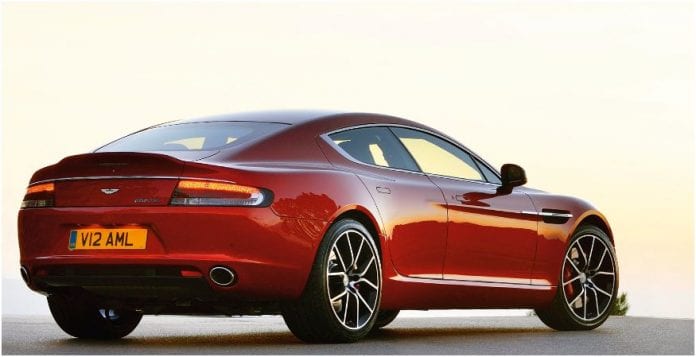In a press release published on February 17th, British luxury car manufacturer Aston Martin announced their plans to release a new electronic vehicle (EV) they are calling the Aston Martin RapidE. RapidE will be developed in partnership with Chinese technology company LeEco, previously known as LeTV, which so far have specialized in Internet-based TV sets and internet content. The new car is expected to be a serious competitor for Tesla Motors Inc (NASDAQ:TSLA)’s EVs.
Not much is known about RapidE at the moment although the company have announced that its engine will have over 800 horsepower and be able to run up to 200 miles on a full battery charge. It has been considered that the car will be an all well drive EV and, with a price tag of between $200,000 and $250,000, it will only appeal to the high-end EV market.
The vehicle is expected to be released in 2018, but it is not the only EV expected to enter into mass production by the end of the decade. Although Tesla Motors are currently struggling to release their own high-end car, Model X, they still hope to be able to win over the mass market in 2017 with their new Model 3 EV.
Audi and Porche are also planning to launch their EV, Mission-E, in 2019 while Chinese-backed Faraday Future, and Atieva has announced that their EVs will hit the market within the next three years.
This is not the first time a tech company like LeEco turned their attention to electronic cars. Google is rumoured to be working with Ford Motor Company on an as yet unnamed EV prototype, and the Wall Street Journal has reported that Apple is working on an EV they are calling “Titan” which could go into mass production in 2019.
Chinese companies like the search giant Baidu are also working on electronic cars, partly because the Chinese government has been very supportive of EVs. Chinese cities have struggled with air pollution and smog for many years, and Chinese officials hope that EVs (which are emission-free) could help solve some of the problems. The Chinese government’s current goal is to see at least five million electric cars on the roads by 2024.
Because of the many problems it faced with its high-end EV, Model X, including delays of over a year in deliveries, Tesla has been struggling to regain the market’s confidence. Their stock finally recovered somewhat last week after the announcement, but share prices have fell over 30% so far this year.









